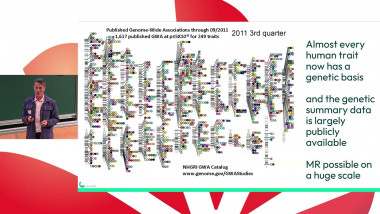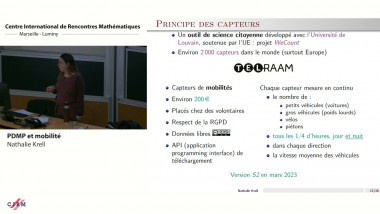Apparaît dans la collection : Jean-Morlet chair: Bayesian statistics in the big data era / Chaire Jean-Morlet : Statistiques bayésiennes à l'ère du big data
In many health studies, interest often lies in assessing health effects on a large set of outcomes or specific outcome subtypes, which may be sparsely observed, even in big data settings. For example, while the overall prevalence of birth defects is not low, the vast heterogeneity in types of congenital malformations leads to challenges in estimation for sparse groups. However, lumping small groups together to facilitate estimation is often controversial and may have limited scientific support.
There is a very rich literature proposing Bayesian approaches for clustering starting with a prior probability distribution on partitions. Most approaches assume exchangeability, leading to simple representations in terms of Exchangeable Partition Probability Functions (EPPF). Gibbs-type priors encompass a broad class of such cases, including Dirichlet and Pitman-Yor processes. Even though there have been some proposals to relax the exchangeability assumption, allowing covariate-dependence and partial exchangeability, limited consideration has been given on how to include concrete prior knowledge on the partition. We wish to cluster birth defects into groups to facilitate estimation, and we have prior knowledge of an initial clustering provided by experts. As a general approach for including such prior knowledge, we propose a Centered Partition (CP) process that modifies the EPPF to favor partitions close to an initial one. Some properties of the CP prior are described, a general algorithm for posterior computation is developed, and we illustrate the methodology through simulation examples and an application to the motivating epidemiology study of birth defects.















